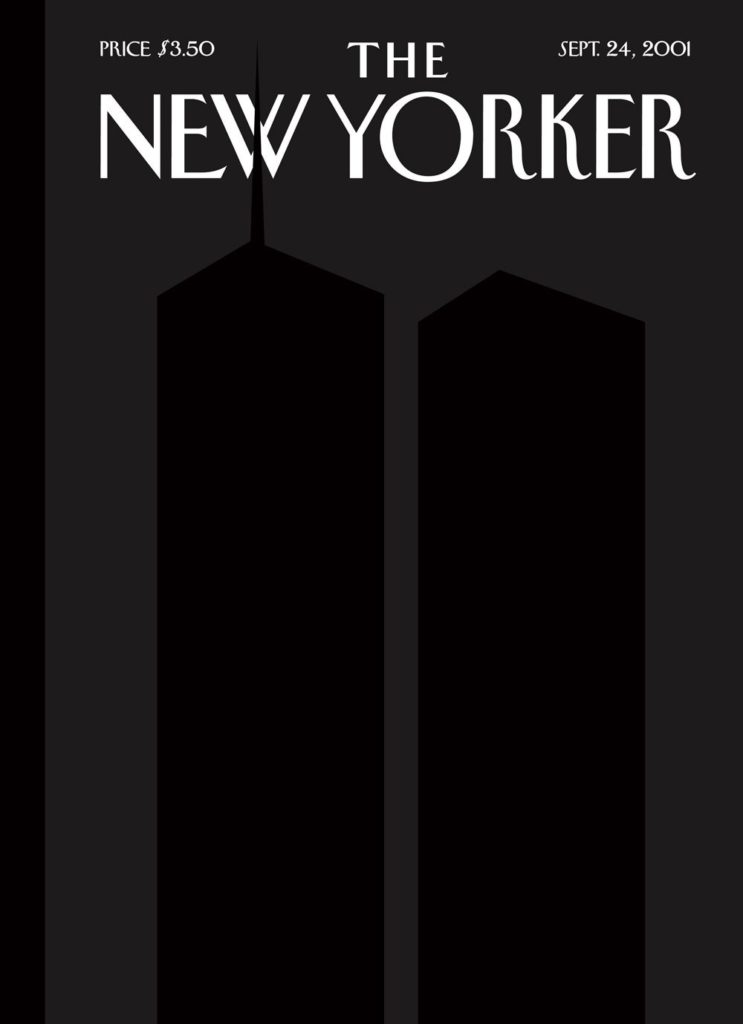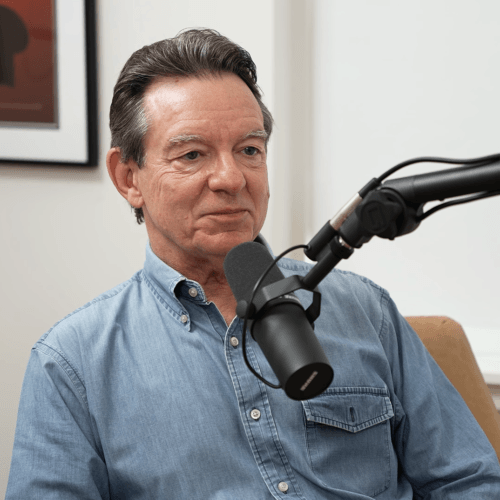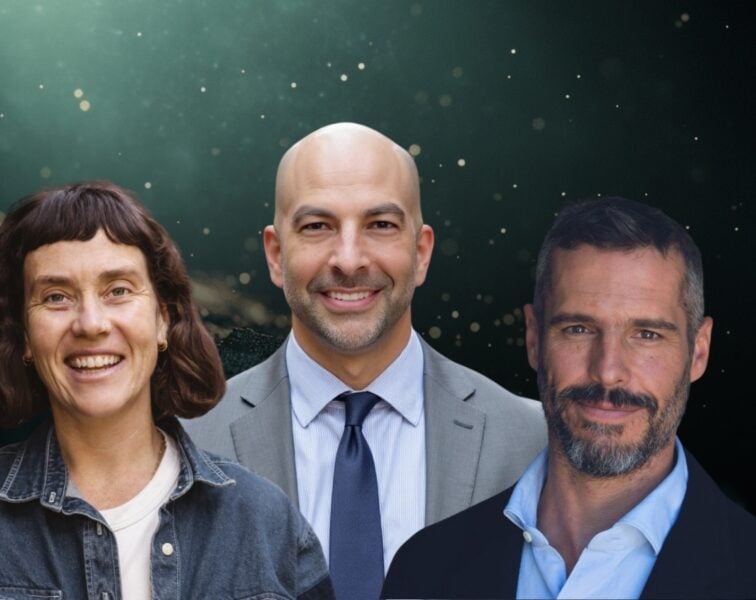Lawrence Wright is the author of The Looming Tower: Al-Qaeda and the Road to 9/11 which won the 2007 Pulitzer Prize for general nonfiction and was named one of Time’s top 100 books of all time. In this episode, released just before the 20th anniversary of the September 11th attacks, Lawrence and Peter discuss the book and the lasting impact of that day. Lawrence reflects on his personal experiences on that day and how he was first drawn into reporting on the attacks. Lawrence then discusses in detail the history that led up to 9/11 which is really composed of two parallel stories. The first story is of the growing discontent in Muslim countries, the roots of Islamic radicalism, and how two extremists, Osama bin Laden and Ayman al-Zawahiri, joined forces to create the global terrorist organization Al-Qaeda. The second story is about how interpersonal and institutional conflicts between the FBI and CIA led to a massive failure in intelligence and resulted in multiple missed opportunities to predict and prevent the attacks on September 11th, 2001. Finally, they reflect on what we should have learned from 9/11 and the future of terrorism.
Subscribe on: APPLE PODCASTS | RSS | GOOGLE | OVERCAST | STITCHER
We discuss:
- Lawrence and Peter recount their personal experiences on September 11th, 2001 [3:30];
- How 9/11 changed the US into a security state and affected a generation [9:45];
- Lawrence’s early coverage of 9/11 and how he knew it was going to be “the story of our lifetime” [14:45];
- Egyptian politics and the foundation of radical Islam [22:45];
- Anwar Sadat’s presidency, assassination, and the birth of the radical Islamic movement [33:00];
- Aftermath of the Sadat assassination, and establishment of Al-Qaeda in Afghanistan [50:15];
- Osama bin Laden: upbringing, involvement in the Soviet–Afghan War, and rise to celebrity status in Saudi Arabia [56:00];
- How the Western intervention in Saudi Arabia impacted Arab nationalist’s hatred of America [1:15:30];
- Theorizing on the role of the religion in holding back Islamic states from making progress towards democracy [1:20:30];
- Bin Laden’s time in Sudan [1:32:30];
- The CIA vs. the FBI: setting the stage for the failure of US intelligence [1:37:00];
- The mistake by US intelligence of not taking the bombings of the US embassies and the USS Cole seriously [1:46:00];
- Al-Qaeda in America: Losing the planners of the 9/11 attacks from our clutches and incompetence at the FBI and CIA [1:56:00];
- Incompetence at the CIA [2:04:45];
- Problematic policies and Europe, and a direct message warning of the 9/11 attacks [2:14:45];
- The role of political infighting and personality conflicts that helped enable the 9/11 attacks and the lack of accountability [2:22:45];
- What came of the 9/11 commission, the role of the Saudi government, and the trials of Ali Soufan [2:36:00];
- Lessons from 9/11 and the future of terrorism [2:46:30]; and
- More.
Get Peter’s expertise in your inbox 100% free.
Sign up to receive An Introductory Guide to Longevity by Peter Attia, weekly longevity-focused articles, and new podcast announcements.
Lawrence and Peter recount their personal experiences on September 11th, 2001 [3:30]
It’s almost the 20th anniversary of September 11, 2001, “certainly the most pivotal moment for many of us in our lifetimes”
- Peter says it’s hard to believe how fast 20 years have gone by
- When Lawrence heard what happened, he knew it was probably a terrorist attack because he had written about terrorism before
- But it was still surprising how dramatic a strike it was
- Lawrence had written a movie called The Siege (which starred Denzel Washington, Bruce Willis, and Annette Bening) about a terrorist attack on US soil in NYC
- In 1998, a few months before the movie opened, Al-Qaeda had attacked American embassies in East Africa and killed 224 people
- but it got little media attention because it happened far away
- Americans still had a sense of invulnerability and didn’t pay much attention
- That same month, there was a bombing at a Planet Hollywood restaurant in Cape Town, South Africa that killed two British tourists and cost a little girl her leg
- An Islamic group took credit and said the attack was a protest against the trailers for The Siege
- “The movie hadn’t even come out yet and people are already dead. And that was a scarring experience for me. … And so terrorism touched me right off”
- He knew Muslims were angry about being portrayed as terrorists
- People picketed the movie and it did not do well, but it was the most rented movie in the US after 9/11
- Peter wonders what the collective impact is for the average person
- On that day he was a surgical resident at Hopkins taking care of a kid who had been hit by a car (who turned out to be ok)
- When Peter heard a plane had hit, he assumed it was a small Cessna that went off course due to fog, but after the second plane hit everyone was watching it on the TVs in the ER
- “And then for the next 48 hours, none of us left the hospital because we were waiting. Would there be survivors coming? Obviously, there were none”
- Peter didn’t know anyone who died that day, or any first responders who were traumatized, but for 10 years he had nightmares about being in the cockpit of United flight 93, the plane that crashed in Pennsylvania
How 9/11 changed the US into a security state and affected a generation [9:45]
- Lawrence says it’s partly generational – he and Peter are old enough for it to have deeply affected them personally
“I think every American was profoundly affected in one way or another. For one thing, there was this sense of invulnerability. It was a smug feeling …Things that happen out there in the rest of the world don’t really touch us. … And that was so punctured. It was so disillusioning, that we’re a regular country and we’re vulnerable, and that was shattering. And I don’t think anybody who was cognizant at that age, I don’t think anybody walked away feeling the same.” —Lawrence Wright
- The culture changed around that event, and young people don’t know what it was like before
- Lawrence remembers once taking a date to the airport in Dallas where they went on a grounded plane and ate a snack in the first class compartment and sat for a while in the FAA tower
- That could never happen today; there was not a feeling of being threatened
- People in their mid-20s or 30s can’t imagine that kind of freedom (“They don’t know that you could go visit the Liberty Bell in Philadelphia without having to take off your belt and your shoes”)
- It’s now normal to live in a security state and feel antagonistic towards the rest of the world
“It’s an aberration in our history. And I would like for us to try to remember the country we were and aim to steer towards that, because … if you lose a memory, of the country that we were, then I don’t think we can ever get back to port.” —Lawrence Wright
- Peter’s parents are immigrants from Egypt
- His dad would often spend a flight in the cockpit and invite the crew over for a meal at their house in Toronto (he was a cook and owned a restaurant)
- That sounds bizarre today
- It makes sense to protect ourselves, be on guard, and ramp up our defenses, but we have created a security state that has abridged our freedom
- “We’re doing it to protect ourselves, but at the same time, we’re the ones that are holding the handcuffs”
Lawrence’s early coverage of 9/11 and how he know it was going to be “the story of our lifetime” [14:45]
Lawrence published The Looming Tower in 2006
- He knew right away that “this was the story of our lifetime”
- He knew it has to have been an organization like the one depicted in The Siege (which we now know was Al-Qaeda)
- A cell tower had been destroyed and the phones were out
- Peter remembers not being able to reach his girlfriend for a day and a half
- Lawrence emailed David Remnick, his editor at The New Yorker, and asked to work on the story
- David asked Lawrence, Jeff Toobin, Jeff Goldberg, and Jane Mayer to find human stories that he could wave together into a narrative

Figure 1. The cover of the New Yorker’s first issue after 9/11, published on September 24, 2001. Image credit: The New Yorker
- Lawrence found a reporter named Kirk Kjeldsen who had an appointment at the Windows on the World restaurant on the top floor of the World Trade Center at 9 am for an investment magazine called Waters
- He fell asleep on the subway and missed his stop
- He ran late into the World Trade Center and had just got on an elevator when the first plane hit
- The elevator doors accordioned, and he got out and saw objects lying everywhere
- He went out onto a patio and there were hundreds of shoes and what he did not yet recognize as bodies on the ground
- When something landed on the ground near him he went back inside
- Kjeldsen’s story started Lawrence writing about 9/11
- “I knew from then that I was on the case and that whatever portion of my life was already spoken for”
- In February, he signed a contract for a book that was supposed to be turned in a year later, but it took 5 years to write
- Peter says there are many of these stories
- he knew someone who was supposed to be on one of the 4 flights but missed it because she overslept
- It’s hard to process stories like that
- And of course someone else probably got her seat
- Lawrence’s book is hard to get through because many of the details are “difficult to swallow”
- The book is really two stories:
{end of show notes preview}
Would you like access to extensive show notes and references for this podcast (and more)?
Check out this post to see an example of what the substantial show notes look like. Become a member today to get access.

Lawrence Wright
Lawrence Wright is an author, journalist, screenwriter, playwright, and staff writer for The New Yorker. He is a member of the Council on Foreign Relations and the Society of American Historians. He is the author of two novels, numerous plays, two screenplays (including the 1998 movie The Siege) and ten non-fiction books, including The Looming Tower: Al-Qaeda and the Road to 9/11 (2006), which won the Pulitzer Prize for general nonfiction and numerous other awards. He graduated from Tulane University and the American University in Cairo.
Website: lawrencewright.com
Twitter: @lawrence_wright



